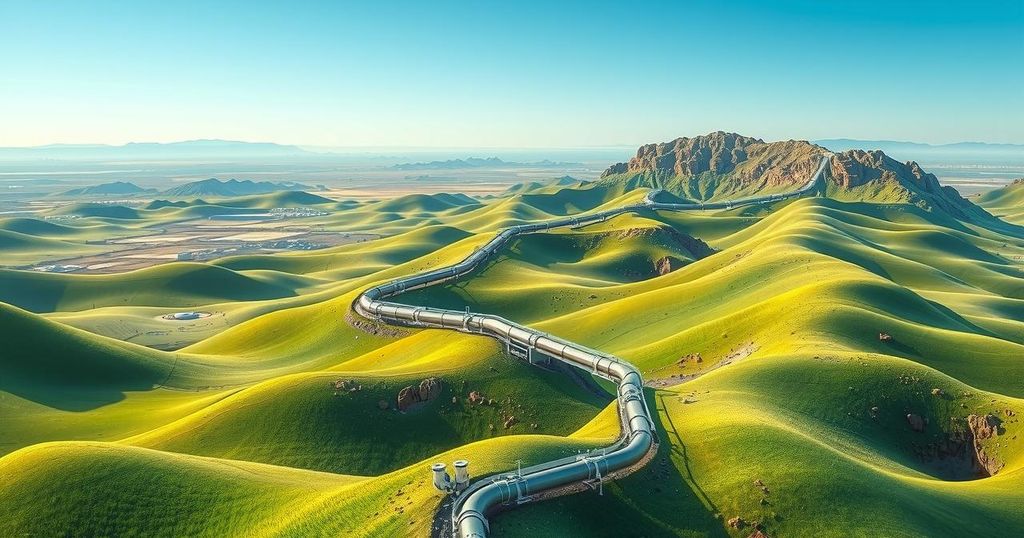Iraq is exploring alternatives to Iranian gas imports due to U.S.-imposed sanctions and aims to reduce reliance on gas supplies from its sanctions-hit neighbor. The country is negotiating gas purchases from Qatar, Oman, and Turkmenistan and is establishing LNG terminals to enhance energy security. With electricity shortages causing public unrest, the government’s efforts to diversify energy sources are crucial for stability.
Iraq is actively seeking alternatives to reduce its dependence on Iranian gas imports, exploring options in the Gulf region. This initiative follows the recent cessation of a US sanctions waiver, which previously permitted Iraq to purchase electricity from Iran. Iranian gas and electricity account for approximately one-third of Iraq’s energy requirements, making the search for diversified sources crucial. “There are government directives and a political will to rely on multiple sources of imports,” stated Saad Jassem from Iraq’s electricity ministry.
Currently, Iraq has not ceased importing gas from Iran, with officials indicating that negotiations for various alternatives are ongoing. Amidst increasing tensions between Washington and Tehran, a US diplomat emphasized the need for Iraq to swiftly reduce its reliance on Iranian natural gas. Despite its oil wealth, Iraq has faced chronic infrastructural challenges and frequent power outages. “We must consider the worst-case scenario — if there is an interruption, we have prepared alternatives,” Jassem noted, highlighting Qatar and Oman as potential suppliers.
Iraq’s government is also establishing two floating liquefied natural gas (LNG) terminals in the southern Khor al-Zubair region, expected to be operational by June. These facilities are projected to process between 14 to 19 million cubic metres of gas daily, with the potential for expansion to reach 800 million cubic feet. The energy issue is termed vital for citizens, as interruptions in gas supply would significantly impact electricity provision.
In pursuing energy independence, Prime Minister Mohammed Shia al-Sudani’s administration aims to curtail gas flaring by 2028, utilizing flared gas for energy production. Relations between Iraq, Iran, and the United States remain complex, particularly as Iraq restructured its gas import agreement with Iran. Despite a renewed agreement allowing for the purchase of 50 million cubic metres per day, Iraqi imports have dwindled, causing exacerbated power shortages and public unrest.
In summary, Iraq’s strategy to diversify its gas sources reflects a significant shift in energy policy, aiming to mitigate reliance on Iranian imports amid geopolitical tensions. The establishment of LNG terminals and negotiations with neighboring countries signal a proactive approach to ensuring energy security. As Iraq faces urgent power supply challenges, particularly during peak demand seasons, these developments are crucial for future stability. The government’s determination to tackle gas flaring while fostering international partnerships illustrates a commitment to self-sufficiency and resilience in the energy sector.
Original Source: www.newstopicnews.com




